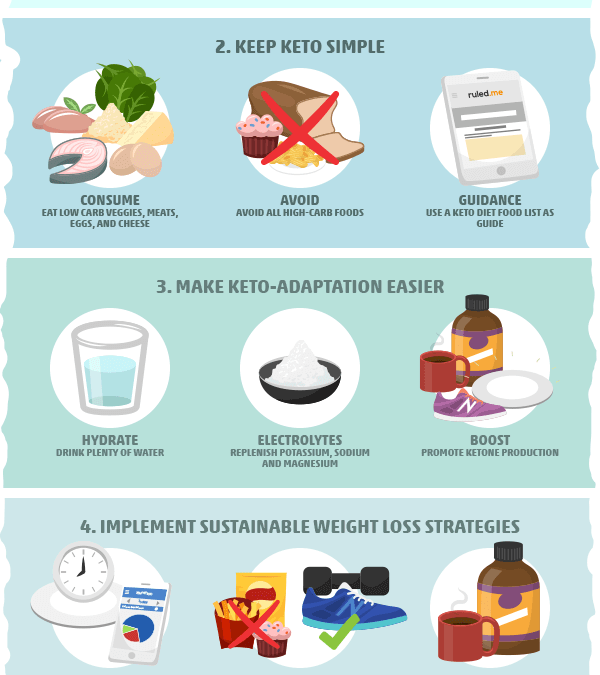Have you ever wondered why so many people are talking about the keto diet for weight loss? Well, let me tell you, it’s not just a passing trend. The keto diet has gained popularity for a reason – it is highly effective in helping you shed those extra pounds. In this article, we will explore the ins and outs of the keto diet and why it can be your secret weapon in achieving your weight loss goals.
So, why exactly is the keto diet good for weight loss? The answer lies in how it works with your body. The keto diet is a low-carb, high-fat diet that forces your body to enter a state of ketosis. In this state, your body begins to burn fat for fuel instead of relying on carbohydrates. By drastically reducing your intake of carbs and increasing your fat consumption, you force your body to become more efficient at burning fat. Not only does this result in weight loss, but it can also lead to increased energy levels and improved mental clarity. Curious to learn more about the keto diet and its benefits? Keep reading to discover how a custom keto diet plan can transform your health and help you achieve your weight loss goals.
Understanding the Keto Diet
The ketogenic diet, commonly known as the keto diet, has gained popularity in recent years as an effective way to lose weight and improve overall health. By drastically reducing carbohydrate intake and increasing fat consumption, the keto diet helps your body enter a state of ketosis, where it relies on fat for fuel instead of glucose. This article will delve into the key principles and benefits of the keto diet, as well as provide tips for successful weight loss and incorporating the keto diet into your lifestyle.
What is the Keto Diet?
The keto diet is a high-fat, low-carbohydrate diet that focuses on consuming foods rich in healthy fats, moderate amounts of protein, and minimal carbohydrates. The primary goal of the diet is to help your body enter a state of ketosis, where it begins to burn stored fat for energy instead of relying on glucose from carbohydrates.
How Does the Keto Diet Work?
When you consume a high amount of carbohydrates, your body breaks them down into glucose, which is used as its primary source of energy. However, when carbohydrates are restricted, your body undergoes a metabolic shift and starts producing ketones from stored fat as an alternative source of fuel. This metabolic state is known as ketosis.
Benefits of the Keto Diet
-
Efficient Fat Burning: By entering ketosis, your body becomes an efficient fat-burning machine. This can lead to significant weight loss, especially in stubborn areas such as the abdomen and hips.
-
Reduced Appetite: The keto diet has been shown to naturally suppress appetite, making it easier to consume fewer calories and adhere to a structured meal plan. This can lead to sustainable weight loss over time.
-
Preservation of Lean Muscle Mass: Unlike traditional low-calorie diets that may result in muscle loss, the keto diet promotes the preservation of lean muscle mass. This can help you achieve a toned and sculpted physique while losing weight.
Key Principles of the Keto Diet
Low Carbohydrate Intake
The keto diet requires strict carbohydrate restriction, typically limiting intake to 20-50 grams per day. This forces your body to rely on ketones for energy rather than glucose.
High Fat Consumption
To compensate for the reduced carbohydrate intake, the keto diet emphasizes consuming high amounts of healthy fats. Avocado, nuts and seeds, olive oil, and fatty fish are excellent sources of healthy fats that can be incorporated into your meals.
Moderate Protein Intake
While the emphasis is on consuming fats, it’s essential to maintain a moderate protein intake. This helps support muscle maintenance and repair. Good protein sources on the keto diet include lean meats, seafood, eggs, and dairy products.
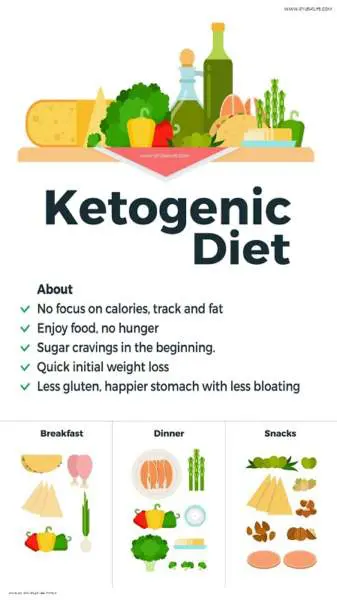
Keto Diet and Weight Loss
Efficient Fat Burning
One of the primary reasons people turn to the keto diet for weight loss is its ability to enhance fat burning. When you enter ketosis, your body efficiently utilizes stored fat as an energy source, leading to a significant reduction in body fat percentage.
Reduced Appetite
The keto diet has been shown to naturally suppress appetite, making it easier to stick to a calorie deficit. The satiating effects of increased fat intake can help lessen cravings and hunger pangs, making weight loss more manageable.
Preservation of Lean Muscle Mass
Unlike traditional low-calorie diets, the keto diet promotes the preservation of lean muscle mass. This is crucial for maintaining metabolic health and preventing muscle loss while losing weight.
Improving Health with the Keto Diet
Reduced Inflammation
The keto diet has been shown to reduce inflammation in the body, which can have numerous health benefits. Chronic inflammation is linked to many diseases, including heart disease, diabetes, and certain types of cancer.
Improved Blood Sugar Control
The keto diet can help stabilize blood sugar levels by reducing carbohydrate intake. This is especially beneficial for individuals with diabetes or insulin resistance, as it can contribute to better glycemic control.
Enhanced Mental Clarity
Many individuals report improved mental clarity and focus while following the keto diet. This is because ketones are a more efficient source of fuel for the brain compared to glucose.
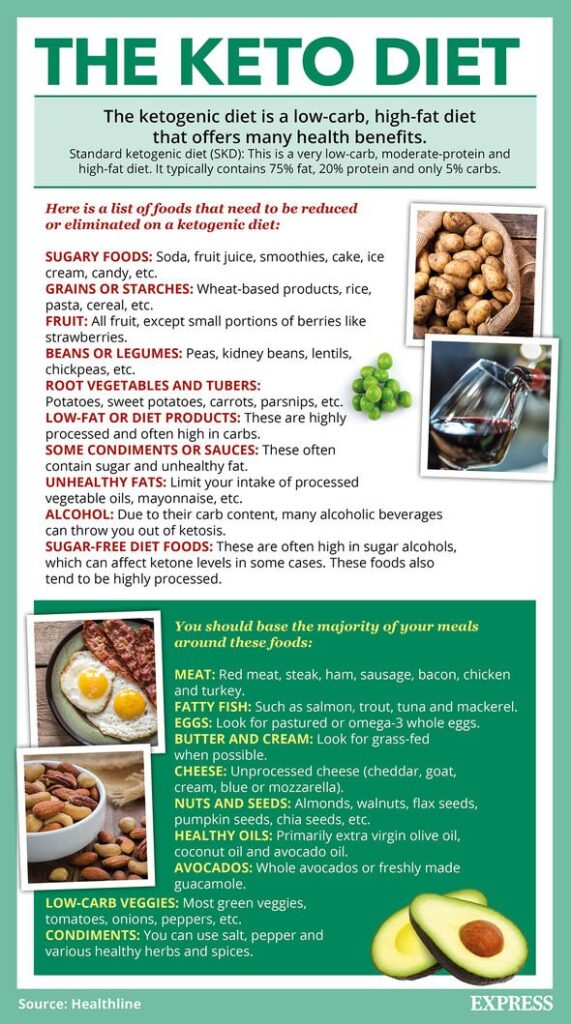
Implementing a Custom Keto Diet Plan
Consultation with a Certified Nutritionist
To ensure the keto diet is suitable for your individual needs, it’s important to consult with a certified nutritionist or healthcare professional. They can guide you through the process, address any concerns, and tailor a plan specifically for you.
Personalized Meal Planning
A custom keto diet plan involves creating a meal plan based on your specific macronutrient needs and food preferences. This ensures you have a variety of delicious and satisfying meals while still adhering to the principles of the keto diet.
Tracking Macronutrient Intake
To effectively follow the keto diet, it’s crucial to track your macronutrient intake. This involves monitoring your daily carbohydrate, fat, and protein intake to ensure you remain within the appropriate ranges for ketosis.
Challenges and Potential Risks of the Keto Diet
Keto Flu
When transitioning to the keto diet, you may experience flu-like symptoms known as the “keto flu.” These symptoms can include fatigue, headache, irritability, and brain fog. However, these usually subside within a few days to a week as your body adjusts to utilizing ketones for energy.
Nutrient Deficiencies
Since the keto diet restricts certain food groups, it’s important to ensure you’re still getting all the necessary nutrients. This can be achieved by incorporating a wide variety of nutrient-dense foods and considering supplementation if needed.
Limited Food Choices
The keto diet can be quite restrictive, especially in terms of carbohydrate-rich foods. This can make it challenging to follow in certain social situations or if you have specific dietary preferences. However, with proper planning and creativity, you can still enjoy a wide range of delicious and satisfying meals.
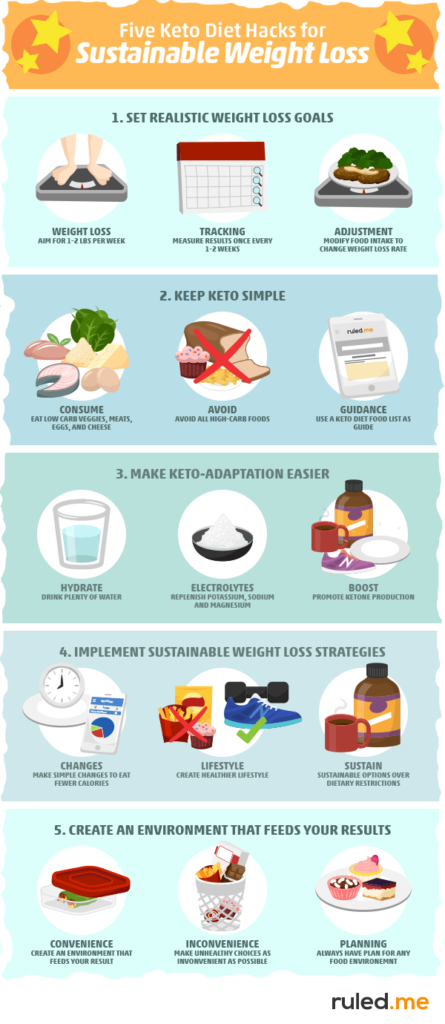
Tips for Successful Weight Loss on the Keto Diet
Stay Consistent with Macros
Consistency with macronutrient intake is crucial for success on the keto diet. Make sure to track your carbohydrates, fat, and protein intake and adjust as needed to stay within the appropriate ranges for ketosis.
Stay Hydrated
Hydration is essential on the keto diet, as your body tends to excrete more water and electrolytes. Make sure to drink plenty of water throughout the day and consider adding electrolyte-rich foods or supplements to prevent dehydration.
Incorporate Regular Exercise
Exercise can enhance weight loss and improve overall health when combined with the keto diet. Incorporate a mix of cardiovascular exercise and strength training to maximize fat burning and maintain lean muscle mass.
Combining the Keto Diet with Other Lifestyle Changes
Intermittent Fasting
Intermittent fasting is a popular approach that can be combined with the keto diet for enhanced weight loss and overall health benefits. Intermittent fasting involves alternating periods of eating and fasting, creating a larger calorie deficit and promoting ketosis.
Regular Sleep Patterns
Quality sleep is crucial for overall health and weight management. Try to establish regular sleep patterns and aim for 7-9 hours of quality sleep per night. This can help regulate hormones related to appetite and improve energy levels.
Stress Management
Chronic stress can hinder weight loss progress and negatively impact your overall health. Incorporate stress management techniques such as meditation, deep breathing exercises, or engaging in hobbies to help reduce stress levels.
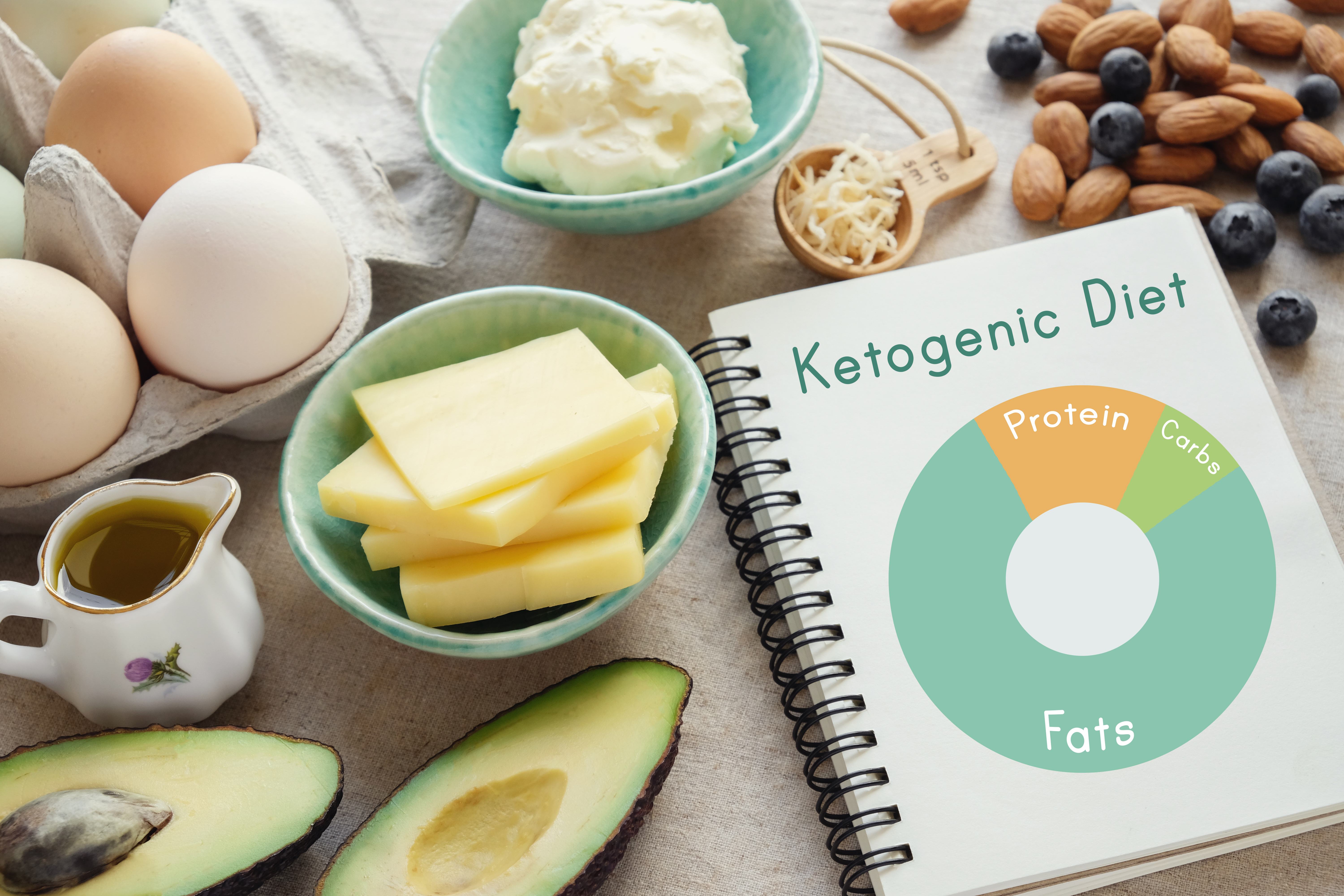
Monitoring and Adjusting Your Keto Diet
Regular Body Composition Analysis
To monitor your progress on the keto diet, consider regular body composition analysis. This can provide valuable insights into your body fat percentage, muscle mass, and overall health markers. Use this information to make any necessary adjustments to your diet and exercise routine.
Reevaluating Goals
Periodically reevaluating your weight loss and health goals is important to ensure you’re on the right track. Be open to adapting your approach and setting new goals as you progress on your keto journey.
Consulting with a Professional
If you have any concerns or questions about your keto diet, don’t hesitate to consult with a qualified healthcare professional or registered dietitian. They can provide guidance and support to help you achieve your weight loss and health goals safely and effectively.
Conclusion
In conclusion, the keto diet can be an effective way to lose weight and improve your overall health. By following the key principles of low carbohydrate intake, high fat consumption, and moderate protein intake, you can achieve and sustain ketosis, leading to efficient fat burning and reduced appetite. With the guidance of a certified nutritionist and a personalized meal plan, you can implement the keto diet successfully and enjoy the numerous benefits it offers. Remember to stay consistent, incorporate regular exercise, and make other lifestyle changes such as intermittent fasting and stress management for optimal results.

